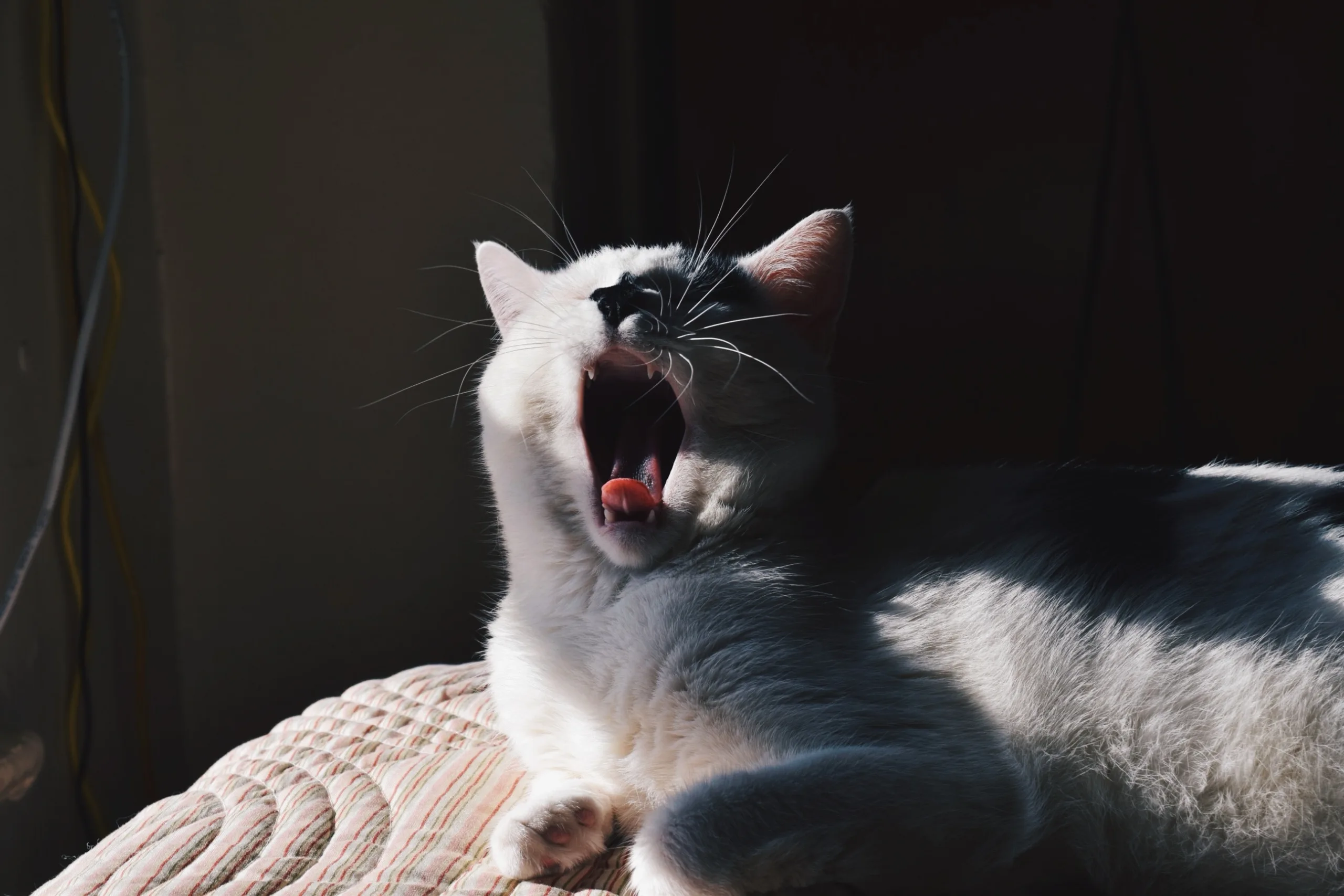Why Cats Sneeze? Cats, with their enigmatic personalities and distinctive behaviors, can sometimes surprise us with actions that seem both amusing and puzzling. One such behavior is sneezing. While sneezing is a common occurrence for both humans and animals, the reasons behind a cat’s sneezing might not always be as straightforward. In this article, we will explore the world of feline sneezing, its potential causes, and when it might warrant a closer look.
For more about cats click here
Is It Normal for Cats to Sneeze?
Sneezing is a normal bodily reflex designed to clear the nasal passages of irritants or foreign particles. Occasional sneezing in cats is generally considered normal, especially when they encounter dust, pollen, or other airborne particles. However, frequent or persistent sneezing can indicate underlying issues that require attention.
When Should I Worry About My Cat Sneezing?
While an occasional sneeze is usually nothing to worry about, there are situations when you should pay closer attention:
- Frequency: If your cat is sneezing frequently throughout the day or over an extended period, it might signal an issue.
- Accompanying Symptoms: Sneezing accompanied by other symptoms like nasal discharge, coughing, watery eyes, or lethargy could be a sign of illness.
- Change in Behavior: If your cat’s sneezing is accompanied by changes in appetite, weight loss, or reduced activity, it’s time to consult a veterinarian.
Why Is My Indoor Cat Sneezing?
Even indoor cats can experience sneezing due to various factors:
- Environmental Irritants: Indoor cats can be exposed to dust, pollen, household cleaners, or other irritants that trigger sneezing.
- Allergies: Cats can develop allergies to substances such as dust mites, mold, or certain types of litter, leading to sneezing.
- Viral Infections: Even indoor cats can contract viruses from other animals, humans, or contaminated objects, causing sneezing and other symptoms.
Is It Normal for Cats to Sneeze a Lot?
While occasional sneezing is normal, frequent sneezing could indicate an underlying issue:
- Upper Respiratory Infections: Cats are susceptible to viral or bacterial infections that can lead to sneezing, nasal congestion, and other symptoms.
- Foreign Objects: If a foreign object, such as a grass blade or small debris, becomes lodged in a cat’s nasal passage, it can cause persistent sneezing.
- Dental Issues: Dental problems or infections in the mouth can sometimes lead to sneezing due to the proximity of the nasal passages.
What Should I Do If My Cat Keeps Sneezing?
If your cat’s sneezing is accompanied by concerning symptoms, it’s advisable to consult a veterinarian:
- Observation: Monitor your cat’s behavior, appetite, and overall well-being to provide the veterinarian with accurate information.
- Avoid Over-the-Counter Remedies: While there are over-the-counter treatments for humans, they can be harmful to cats. Always consult a veterinarian before administering any medications.
- Professional Examination: A veterinarian will perform a thorough examination, possibly including blood tests or imaging, to identify the underlying cause of the sneezing.
Why Is My Cat Sneezing but Not Sick?
Cats can sneeze without being visibly ill due to factors such as irritants, allergies, or mild respiratory infections. While the sneezing might not indicate a severe illness, it’s still important to monitor your cat for any changes in behavior or other symptoms.
Why Is My Cat Sneezing but Seems Fine?
Sneezing without any accompanying symptoms might be due to transient irritants or minor allergies. However, if the sneezing persists or worsens, it’s advisable to seek veterinary attention to rule out any potential issues.
External Resources for Cat Health
For further insights into cat health and behaviors, consider exploring these resources:
Frequently Asked Questions About Cat Sneezing
Q1: When should I worry about my cat sneezing? You should worry if your cat sneezes frequently, has accompanying symptoms, or exhibits changes in behavior or appetite.
Q2: Why is my indoor cat sneezing? Indoor cats can sneeze due to environmental irritants, allergies, or viral infections.
Q3: Is it normal for cats to sneeze a lot? Frequent sneezing might indicate upper respiratory infections, foreign objects, or dental issues.
Q4: What should I do if my cat keeps sneezing? Monitor your cat, avoid over-the-counter remedies, and consult a veterinarian for a professional examination.
Q5: Why is my cat sneezing but not sick? Sneezing can result from irritants, allergies, or minor respiratory issues without causing severe illness.
Q6: Why is my cat sneezing but seems fine? Sneezing without other symptoms might be due to transient irritants or allergies, but persistent sneezing should be examined by a veterinarian.
In Conclusion
Just like humans, cats can sneeze for a variety of reasons, ranging from harmless irritants to underlying health issues. While occasional sneezing is usually normal, frequent or persistent sneezing warrants attention and observation. Monitoring your cat’s overall health, behavior, and any accompanying symptoms can help you determine whether a trip to the veterinarian is necessary. By understanding the potential causes of feline sneezing and acting responsibly to address any concerns, you can ensure that your feline friend enjoys a healthy and comfortable life.
